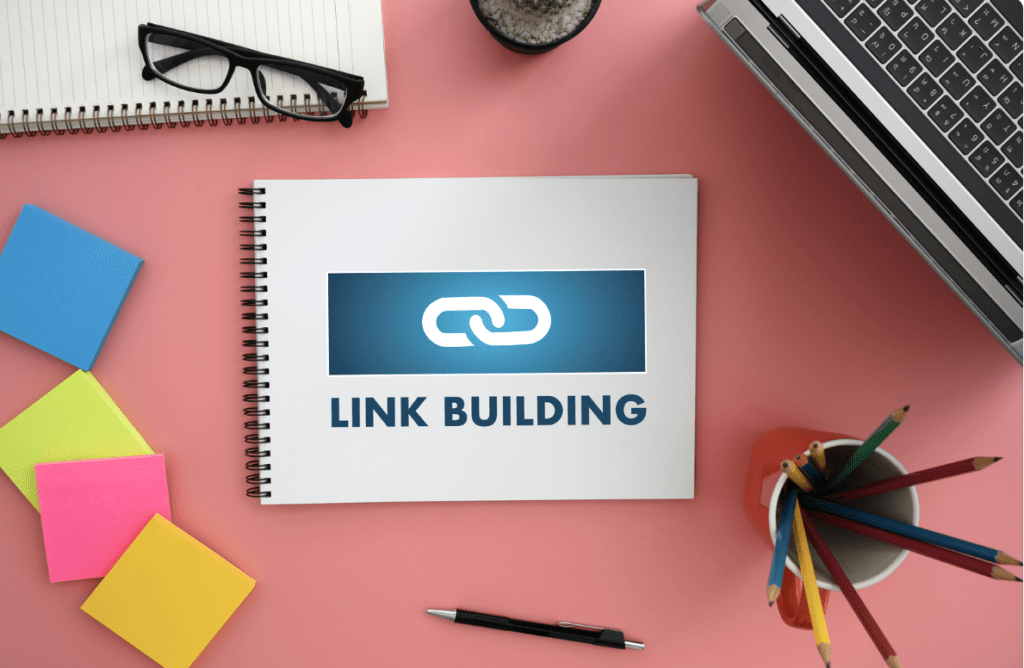Link building is a crucial aspect of any successful e-commerce strategy. By acquiring high-quality backlinks from authoritative websites, you can improve your website’s visibility, drive organic traffic, and ultimately boost your sales.
In this guide, we will share 11 practical tips for business owners to start link-building for their e-commerce websites. Whether you’re just starting out or looking to enhance your existing link-building efforts, these tips will help you achieve long-term success.
Benefits of Link Building for Ecommerce
E-commerce websites face fierce competition in search engine rankings. Link building helps build your website’s authority and credibility, signaling to search engines that your site is trustworthy and relevant. By securing high-quality and relevant links, you increase your chances of ranking higher in search results, attracting more organic traffic, and reaching a wider audience.
- Improved search engine rankings: Quality backlinks from authoritative sites can significantly boost your website’s visibility in search engine results pages (SERPs).
- Increased organic traffic: Higher rankings lead to more organic traffic, as your website becomes more visible to potential customers actively searching for products you offer.
- Enhanced brand reputation: Earning inbound links from reputable websites adds credibility to your brand and builds trust among potential customers.
- Better conversion rates: When your website attracts relevant traffic from authoritative sources, you have a higher chance of converting those visitors into paying customers.
Types of Link Building for E-commerce Websites
E-commerce websites can employ various link-building strategies to enhance their online presence. Here are some effective tactics to consider:
1. Guest Blogging and Content Contributions
Guest blogging involves writing and publishing articles on external websites within your niche. By providing valuable guest posts, you can secure a backlink to your e-commerce site. Look for reputable blogs or industry publications that accept guest contributions and provide relevant, engaging content that benefits their audience. Guest posts are some of the best link-building opportunities.
2. Influencer Marketing and Product Reviews
Collaborating with influencers in your industry can help your online business secure high-quality backlinks. Consider reaching out to influencers who align with your brand and have a substantial following. Offer them your products for review or sponsor their content, and in return, ask for a backlink to your e-commerce website.
3. Broken Link Building
This strategy involves finding broken links on websites with high domain ratings and reaching out to the site owners or webmasters, notifying them about the broken links, and suggesting your relevant content as a replacement. This tactic allows you to provide value by helping the website owner fix their broken links while gaining valuable “link juice” for your ecommerce site.
4. Building Relationships with Manufacturers and Suppliers
Establishing strong relationships with manufacturers and suppliers in your industry can lead to valuable backlinks from relevant sites. Ask them to include a link to your website in their list of retailers or distributors. These backlinks not only improve your SEO but also enhance your credibility as an authorized seller of their products.
Top Tips for Ecommerce Link Building
Now that we’ve explored the importance of link-building and the types of strategies that work for e-commerce websites, let’s delve into 11 practical tips to kickstart your link-building efforts:
1. Create High-Quality, Shareable Content
Producing engaging and quality content is the foundation of a successful e-commerce link-building campaign. Develop informative blog posts, product guides, tutorials, or videos that your target audience will find useful and shareable. This increases the likelihood of other websites linking back to your content and giving their vote of confidence.
2. Leverage Social Media Platforms
Promote your content and engage with your audience on social media. By building a strong social media presence, you can attract attention from influencers, industry leaders, and potential linking opportunities.
3. Optimize Your Product Descriptions
Ensure your product descriptions are unique, compelling, and well-optimized for search engines. Including relevant keywords increases the chances of your products appearing in organic search results, attracting potential backlink opportunities.
4. Participate in Online Communities and Forums
Engage with online communities and forums relevant to your niche. Contribute valuable insights, answer questions, and share your expertise. This positions you as an authority and increases the likelihood of getting quality links to your e-commerce site.
5. Conduct Competitor Research
Analyze your competitors’ backlink profiles to identify potential linking opportunities. Tools like Ahrefs or SEMrush can help you discover websites that are linking to your competitors but not to your own site, providing you with a list of potential outreach targets.
6. Build Local Partnerships
Connect with local businesses, organizations, and influencers in your area. Sponsor local events, collaborate on content, or host joint promotions. These partnerships can lead to valuable backlinks from local directories or event websites.
7. Utilize Online Directories and Review Platforms
List your e-commerce website on relevant online directories and review platforms. Ensure your business information is accurate and up to date. These platforms often provide opportunities for high-quality links and increased visibility for your business.
8. Create Infographics and Visual Content
Visual content, such as infographics, can be highly shareable and attract backlinks. Create visually appealing and informative infographics related to your industry or product niche. Include an embed code, making it easy for others to share and link back to your website.
9. Conduct Expert Interviews
Interview industry experts, influencers, or thought leaders in your niche. Publish these interviews on your website and ask the interviewees to share the content, which can lead to valuable backlinks from their own websites or social media profiles.
10. Monitor and Reclaim Lost Backlinks
Regularly monitor your backlink profile to identify any lost or broken links. Reach out to the website owners and kindly ask them to reinstate the link or fix the broken URL. This way, you can maintain a strong backlink profile and maximize your link-building efforts.
11. Work with Markitors for Digital PR
If you’re seeking expert assistance in executing an effective link-building strategy for your e-commerce website, consider partnering with Markitors. With our expertise in digital PR and building backlinks, we can help you identify opportunities, build relationships, and secure high-quality backlinks to boost your e-commerce business.
Link building is a critical component of any e-commerce business’s success. By following the 11 top tips mentioned in this guide, you can improve your website’s visibility, drive more organic traffic, and ultimately increase your sales. Remember to prioritize quality over quantity, focus on building genuine relationships, and consistently monitor and refine your link-building efforts.
Markitors is a digital marketing agency that specializes in search engine optimization (SEO), content marketing, and digital PR/link-building services. With a team of experienced professionals, we help businesses improve their online presence, increase organic traffic, and generate leads. Our expertise in link-building and digital PR makes us a solid partner for e-commerce businesses looking to enhance their link-building strategies and drive growth.
Get a free SEO audit or schedule a consultation.







